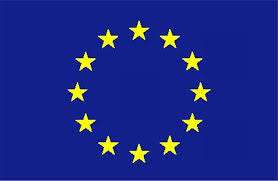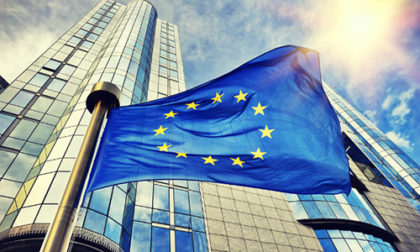European Commission Drops All Online Gambling Proceedings Involving EU Member States
In a move that has implications for the health and viability of the European Union itself, the European Commission announced on Thursday that it is dropping all online-gambling enforcement actions against European Union member states.
The European Commission, which along with the Court of Justice of the European Union comprises the legal branch of the EU, positioned its withdrawal as part of a relevant weighing of priorities and a consideration of all “the public and private interests involved.”
 The impact of the EC’s withdrawal from the adjudication of online-gambling disputes will likely cause a ripple effect through the Europe-facing online gambling industry. Perhaps most importantly, the EC’s withdrawal from such disputes will allow many EU member countries to firewall their online borders, creating barriers to market entry, ultimately reducing market competition.
The impact of the EC’s withdrawal from the adjudication of online-gambling disputes will likely cause a ripple effect through the Europe-facing online gambling industry. Perhaps most importantly, the EC’s withdrawal from such disputes will allow many EU member countries to firewall their online borders, creating barriers to market entry, ultimately reducing market competition.
Such barriers have often been created at the behest of individual countries’ state-run lottery operations, which have sought to limit competition for consumer’s gambling bankrolls. The EC’s withdrawal from considering such matters raises the likelihood of more such cases as the current licensing battle underway in Germany, where that country’s state-level ministers have continue pushing forward a regulatory regime that contradicts EU trade law.
Removing the European Commission from the battleground will inevitably make operator licensing more restrictive. That in turn will narrow the number of operators seeking such licensing; the move in general should favor larger operators over time, though the online industry is displeased in general at the news.
The EC’s failure to stand behind its own tenets may also represent a blow to several online-gambling industry hubs. Locations such as Gibraltar, Malta, Alderney and the Isle of Man have enjoyed market access across much of the EU. Some of that access has been endangered by the UK’s “Brexit” from the EU, and for others, similar barriers to access may now find a freer path to enactment.
According to a statement issued by the European Commission:
The Court of Justice of the European Union has repeatedly recognised Member States’ rights to restrict gambling services where necessary to protect public interest objectives such as the protection of minors, the fight against gambling addiction and the combat of irregularities and fraud. The Commission acknowledges the broader political legitimacy of the public interest objectives that Member States are pursuing when regulating gambling services. The Commission also notes Member States’ efforts to modernise their online gambling legal frameworks, channel citizens’ demand for gambling from unregulated offer to authorised and supervised websites, and ensure that operators pay taxes. With that in mind, it is not a priority for the Commission to use its infringement powers to promote an EU Single Market in the area of online gambling services.
The Commission will continue to support Member States in their efforts to modernise their national online gambling legal frameworks and to facilitate cooperation between national gambling regulators.
The Commission’s framing of its withdrawal from online-gambling matters, burying the reality of the retreat under the low-hanging fruit of underage gambling, gambling addiction and the like, offers scant cover to what this is really about: The EC has repeatedly failed to secure meaningful enforcement against EU member nations in such matters, and is thus throwing in the towel. That comes despite the reality that online gambling is one of the flashpoint niches seeming to have been designed for multinational, EU-level oversight.
Two European lobbying organizations immediately issued statements of disappointment over the EC’s retreat. According to Clive Hawkswood, CEO of the London- and Brussels-based Remote Gambling Association, which represents about 30 firms:
“The existence of infringement proceedings and the Commission’s subsequent pressure on Member States to comply with EU law has helped with the introduction of many effective and sensible regulatory regimes for online gambling across Europe. However, many other cases have been left to languish for several years and many unlawful restrictions to the free provisions of services have yet to be addressed. In those circumstances we are of course dismayed that, with regard to the Internal Market, the Commission has effectively abandoned our sector and given a free pass to non-compliant regimes. However, we will continue to work with Member States with the aim of establishing EU-compliant regimes that would benefit European consumers, the online gambling industry, and national Governments.”
Maarten Haijer, the Secretary General of the European Gaming and Betting Association (EGBA), offered a similar take:
“Today’s decision by the Commission is unhelpful in the fight against unregulated non-EU gambling services. National courts will continue to be confronted with gambling cases and the CJEU will continue to rule on questions from national courts. This decision sends a signal that the Juncker Commission fails to appreciate the need to underpin its ambitious Digital Single Market programme with solid enforcement and guidance from the Commission itself, taking its role as guardian of the treaties seriously. The question is not whether the Commission should create an internal market for online gambling or not, but the idea that regulatory and EU law challenges of an internet sector like online gambling can be resolved by member states individually, shows a baffling lack of understanding of the digital consumer by the Juncker Commission.”




















COMMENTS